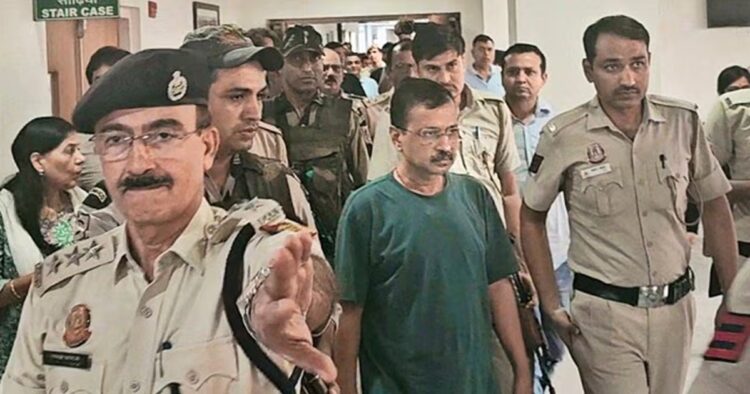On Wednesday, a Delhi court ordered Chief Minister Arvind Kejriwal to three days of custody under the Central Bureau of Investigation (CBI), following his arrest earlier in the day in connection with the excise policy case. The CBI had requested a five-day custody period but was granted three by the court. This development marks a significant escalation in the ongoing investigation into alleged corruption and bribery linked to Delhi’s excise policy.
The Enforcement Directorate (ED) had previously arrested Kejriwal in March on charges of money laundering. The CBI’s investigation, under the Prevention of Corruption Act (PC Act), seeks to prove allegations of corruption and bribery among public servants. Although the CBI registered the corruption case back in 2022, Kejriwal was not initially named as an accused.
#WATCH | Arvind Kejriwal taken from the Rouse Avenue Court in Delhi
The Court has sent him to a 3-day CBI remand in connection with the Excise policy case#ArvindKejriwal #CBI #ExcisePolicyCase #RouseAvenueCourt https://t.co/RPZyEBzrpj pic.twitter.com/VoB7pmA2d3
— Ritam English (@EnglishRitam) June 26, 2024
In a parallel legal development on Wednesday, the Supreme Court permitted Kejriwal to withdraw his plea against the High Court’s interim stay on the trial court’s bail order in the ED case. This decision followed shortly after his arrest by the CBI related to the excise policy scam.
Kejriwal has been lodged in Tihar Jail since his arrest by the ED on March 21 for alleged money laundering. The dual investigations by the ED and CBI are focusing on uncovering the money trail and proving the corruption charges, respectively.
As the legal battles intensify, Kejriwal’s arrest and subsequent custody underscore the growing scrutiny of his administration and the broader implications for Delhi’s political landscape.

















Comments